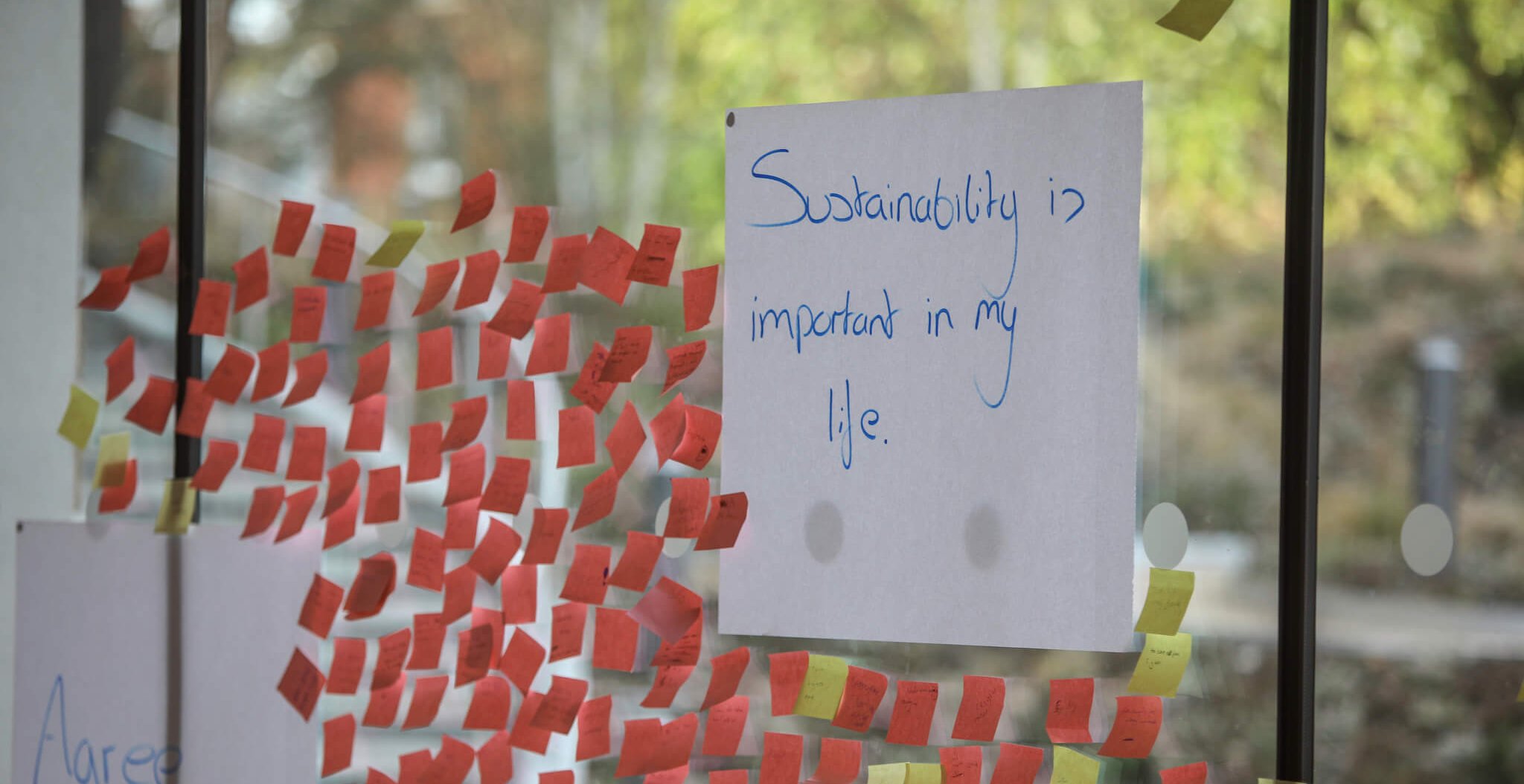
During the week before Lent half-term, students across the country took to the streets to protest about the lack of climate action. Meanwhile, Wellington students, Hugh Ragg (U6th, M) and Jaaikaran Chanana (3rd, M), voiced their thoughts in a different way. Here are their reflections on Wellington’s first Sustainability Day.
The Beyond COP21 Symposium took place at Wellington on 13th February, with over 1000 students involved in what was to be the ninth global event of its kind, contributing to an initiative that originated in Dubai back in 2016. We were joined by students from Collingwood College, Tomlinscote School and Blessed Hugh Faringdon Catholic School for an all-day event which aimed to educate participants about the environmental problems we are faced with, as well as some of the solutions that are being pursued from both global and local perspectives.
The day began with a talk from Peter Milne, CEO of Target4Green, the company responsible for the Beyond COP21 initiative, during which he made an exhortation to the students present to “put [our] environmentally friendly thinking caps on”. He also showed some moving images of the negative impacts that climate change has had on our planet, before shifting the focus to the UN’s 17 Sustainability Development goals which are set to be completed by 2030.
One of the highlights of the day was a passionate speech by Her Excellency Guisell Morales-Echaverry, the Nicaraguan ambassador to the UK, about Nicaragua’s ‘Green Revolution’. 52% of the country’s energy comes from renewable resources and it is one of the world’s leading investors in renewable energy despite being one of Central America’s poorest countries in terms of GDP. She also gave an insight into the high level of enthusiasm expressed by Nicaraguans when it comes to protecting their country’s natural beauty, in particular with regards to the Nicaraguan Rainforest which is the second largest in the world.
Turning our attention inwards, the Domestic Manager at College, Mr Heffer, gave some very eye-opening facts regarding the College’s waste production and carbon footprint. He talked about what goes on behind the scenes within our own community to reduce the environmental impact we have as a College. For example, since changing from single-use plastic cups to glasses in the dining hall we have managed to avoid the disposal of around 5000 plastic cups per day.
One initiative that has certainly made a difference to the aesthetic around College is the instalment of solar panels. We heard from a representative from Solar for Schools that this sort of renewable energy production is likely to be instrumental in saving the planet and that, on a practical level, they can save money in the long-term. Hampshire College in West Massachusetts, for example, now powers their entire campus with 100% solar energy and is estimated to save $8-10 million over the solar panels’ life span.
Other environmental issues were addressed in several additional workshops delivered throughout the day, such as the increase in plastic pollution in the oceans which has had detrimental implications for marine life.
Despite the focus on environmental problems, the tone of the day was undeniably optimistic. The aim was to educate students not only about the dangers of certain human activity but also about the technological developments and initiatives that allow us to limit our impact on the environment and effect some positive change.
By lunchtime, Selangor Court was adorned with hundreds of handwritten pledges that students had made concerning changes that they will make on an individual level to try to live a more sustainable life. If anything, the day served to increase awareness of environmental issues and open our eyes to the possible actions we can take to help better our planet.









